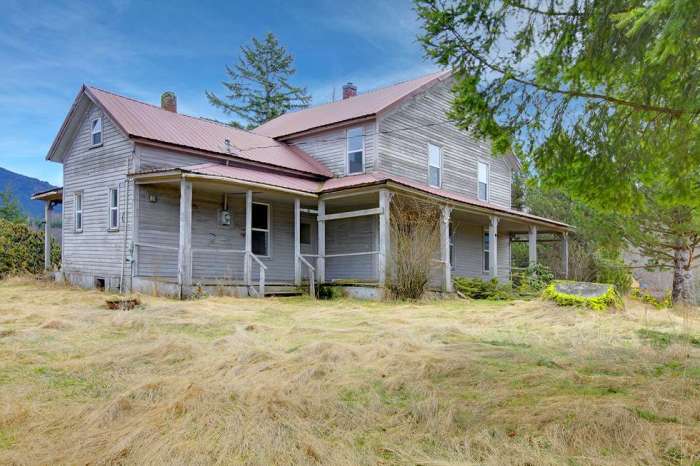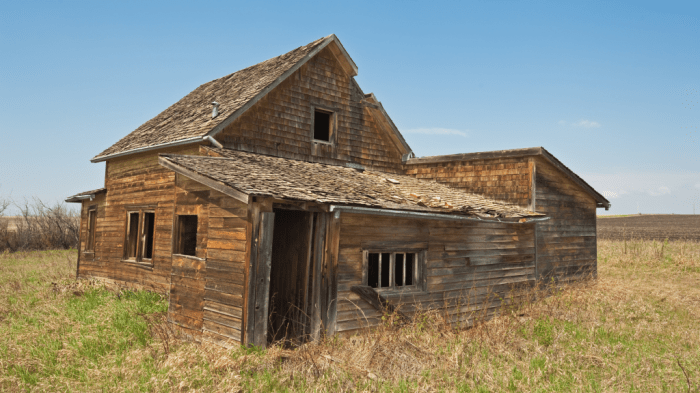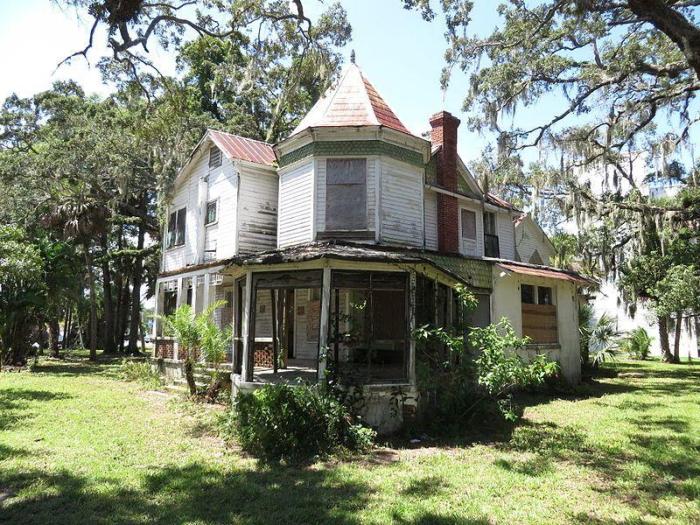How to buy abandoned property in Florida? It sounds like a treasure hunt, and in a way, it is! This guide walks you through the process of finding, researching, and legally acquiring abandoned properties in the Sunshine State. We’ll cover everything from identifying potential properties using online resources to navigating the complexities of tax liens and ensuring you’re legally compliant throughout the entire process.
Get ready to uncover hidden gems and potentially score a great deal!
Finding abandoned property in Florida involves a mix of online sleuthing, legal research, and a bit of detective work. This isn’t a quick process, but with careful planning and attention to detail, you can significantly increase your chances of success. We’ll break down each step, providing practical tips and resources to help you every step of the way.
Remember, patience and thoroughness are key to successfully navigating the unique challenges of acquiring abandoned properties.
Identifying Abandoned Properties in Florida: How To Buy Abandoned Property In Florida

Source: ownerly.com
Finding abandoned properties in Florida requires understanding the legal definition and utilizing available resources. While there isn’t a single, universally accepted definition of “abandoned property” in Florida law, it generally refers to real estate left unoccupied and unmaintained for an extended period, with the owner seemingly having relinquished all claims or interest. This often involves unpaid property taxes and a lack of clear ownership.
Legal Definition of Abandoned Property in Florida
Florida doesn’t have a specific statute defining “abandoned property” in the context of real estate. Instead, the determination of abandonment often relies on a combination of factors considered by courts on a case-by-case basis. These factors might include the length of vacancy, the lack of property maintenance, unpaid taxes, and evidence suggesting the owner’s intent to abandon the property.
It’s crucial to consult with a legal professional before attempting to claim any property you suspect is abandoned. The legal process of acquiring abandoned property can be complex and vary depending on the specific circumstances.
Locating Potentially Abandoned Properties Using Online Resources, How to buy abandoned property in florida
Identifying potentially abandoned properties involves systematically searching public records and utilizing online tools. A step-by-step approach can increase your chances of success.
- Identify Target Areas: Begin by focusing on specific neighborhoods or areas known for high rates of property tax delinquency or visible signs of neglect.
- Utilize County Tax Assessor Websites: Each county in Florida has a tax assessor’s website providing detailed information on property ownership, tax payments, and property assessments. Look for properties with significant tax delinquencies or those marked as having no current owner listed.
- Employ GIS Mapping Tools: Geographic Information Systems (GIS) mapping tools, often available through county websites or services like Google Earth, allow you to visually inspect properties. Look for signs of neglect such as overgrown vegetation, dilapidated structures, or boarded-up windows.
- Cross-Reference Data: Compare the information obtained from the tax assessor’s website with the visual evidence from GIS mapping. This helps confirm whether a property shows signs of prolonged vacancy and neglect.
- Review Public Records: Go beyond online resources and check county court records for any legal actions related to the property, such as foreclosure proceedings or quiet title actions.
Examples of Online Resources
Several online resources aid in finding potentially abandoned properties. Remember that the reliability of data varies depending on the source and the timeliness of updates.
| Resource Name | URL | Data Type | Data Reliability |
|---|---|---|---|
| [County Name] Property Appraiser | [Insert Example County Appraiser Website URL – e.g., http://www.examplecounty.com/propertyappraiser] | Property ownership, tax records, assessments | Generally High (varies by county and data update frequency) |
| Google Earth | [Insert Google Earth URL] | Satellite imagery, aerial photography | High for visual inspection, but may not provide ownership details |
| [State of Florida GIS Data Portal – Example] | [Insert Example Florida GIS Data Portal URL] | Geographic data, parcel information | Moderate to High (depends on data completeness and accuracy for specific counties) |
| Zillow/Redfin (for comparison) | [Insert Zillow/Redfin URL] | Property values, photos, listing information | Low for identifying abandoned properties directly; useful for comparative analysis. |
Legal and Regulatory Compliance

Source: everwondered.org
Buying abandoned property in Florida, while potentially lucrative, requires navigating a complex legal landscape. Understanding the relevant laws and regulations is crucial to avoid costly mistakes and ensure a smooth transaction. Failure to comply can lead to legal challenges, loss of investment, and even criminal charges. This section Artikels the key legal aspects involved in acquiring abandoned properties in the Sunshine State.
Legal Requirements for Purchasing Abandoned Property
Purchasing abandoned property in Florida isn’t as simple as claiming it. The process involves several steps to ensure the transaction is legally sound and respects the rights of all potential stakeholders. Even properties appearing abandoned may have legal owners, and ignoring the proper procedures can lead to significant problems. The primary goal is to establish clear title and ownership.
This usually involves extensive research, including title searches and potential court proceedings.
Notifying Relevant Parties
Before attempting to purchase an abandoned property, you must make a diligent effort to notify all known interested parties. This includes the current owner, if known, any lien holders, and relevant government agencies. Florida law doesn’t specify a precise method of notification, but certified mail with return receipt requested is recommended to establish proof of notification. If the owner is unknown, a diligent search using public records and other resources is necessary.
This effort should be documented meticulously. Failure to adequately notify interested parties could invalidate your claim.
Potential Legal Pitfalls
Several potential legal pitfalls exist when purchasing abandoned property in Florida. One significant risk is acquiring property with undisclosed liens or encumbrances. Thorough title searches are essential to identify any outstanding debts or claims against the property. Another risk is adverse possession claims by others who may have occupied the property for a sufficient period. Understanding Florida’s adverse possession laws is vital to protect your investment.
Finally, environmental concerns are another potential issue. Abandoned properties might have environmental contamination, requiring costly remediation. Environmental site assessments are often necessary.
Relevant Florida Statutes and Regulations
Florida Statutes concerning abandoned property and adverse possession are complex. While specific statutes addressing the direct purchase of abandoned property are limited, several relevant laws govern property ownership, adverse possession, and tax deeds. For example, Florida Statutes Chapter 70, dealing with adverse possession, Artikels the requirements for claiming ownership through continuous occupation and other legal criteria. Similarly, the Florida Statutes relating to tax deeds (Chapter 197) provide a pathway for acquiring title to properties with delinquent taxes.
Consulting with a Florida real estate attorney experienced in this area is strongly recommended to ensure compliance with all relevant statutes and regulations. These statutes can be complex and are subject to change, making legal counsel invaluable.
Post-Purchase Considerations

Source: newsilver.com
Buying abandoned property in Florida can be a lucrative venture, but it’s crucial to understand the post-purchase responsibilities and potential costs involved. This section Artikels key considerations to ensure a smooth transition and successful project. Failing to plan for these aspects can significantly impact your investment’s profitability.
Renovation and Repair Costs
Renovating an abandoned property often involves unexpected expenses. Costs can vary dramatically depending on the property’s condition, size, and the scope of the renovation. For example, a small, neglected bungalow might require new roofing (potentially $10,000-$20,000), plumbing repairs ($5,000-$15,000), electrical rewiring ($5,000-$10,000), and extensive interior work including drywall, painting, and flooring (another $10,000-$30,000 or more). Larger properties or those requiring structural repairs can easily cost hundreds of thousands of dollars.
Always obtain multiple detailed quotes from reputable contractors before starting any work. Remember to factor in permits and inspection fees, which can add a significant amount to the overall cost. Unexpected discoveries, such as asbestos or lead paint, can also dramatically increase expenses. It’s prudent to budget a contingency fund of at least 20% of your estimated renovation costs to cover unforeseen issues.
Securing and Protecting the Property
Securing your newly acquired abandoned property is paramount. Immediately after purchase, you should change the locks on all exterior doors and windows. Consider installing a robust security system, including motion detectors and alarm monitoring, to deter vandalism and theft. If the property is vacant for an extended period, regular site visits or hiring a property management company for security checks are recommended.
Board up any broken windows or damaged doors temporarily until repairs can be completed. Thorough landscaping, including removing overgrown vegetation, can improve security by reducing hiding places and improving visibility. Proper fencing and gates can further enhance security and deter trespassers.
Insurance Requirements
Insurance is a critical aspect of owning an abandoned property. Standard homeowner’s insurance policies might not cover the unique risks associated with abandoned buildings. You’ll likely need specialized coverage to address potential issues such as vandalism, theft, liability, and damage from weather-related events. Discuss your specific needs with an insurance broker specializing in high-risk properties. Factors like the property’s condition, location, and intended use will influence the cost and availability of insurance.
It is essential to obtain adequate coverage to protect your investment and avoid financial liability.
Essential Post-Acquisition Tasks
After purchasing an abandoned property, several essential tasks need immediate attention. These actions help secure the property, protect your investment, and pave the way for future renovations or development.
- Secure the property: Change locks, board up windows/doors, install security systems.
- Conduct a thorough inspection: Identify all structural, plumbing, electrical, and other damage.
- Obtain necessary permits: Secure building permits for any planned renovations or repairs.
- Contact utility companies: Establish service connections for water, electricity, gas, and waste disposal.
- Address any immediate safety hazards: Remove any debris, hazardous materials, or potential dangers.
- Begin the cleaning process: Remove trash, debris, and other unwanted materials from the property.
- Start the renovation planning: Develop a detailed plan for repairs and renovations, including obtaining multiple contractor quotes.
Last Recap

Source: urbanghostsmedia.com
Buying abandoned property in Florida presents a unique opportunity, but it’s crucial to approach it strategically and legally. From online searches to navigating tax auctions and legal requirements, we’ve covered the key steps involved. Remember, due diligence is paramount; a thorough property assessment and legal counsel are vital before committing to a purchase. With careful planning and a methodical approach, you can successfully acquire abandoned property and potentially unlock significant value.
Good luck on your property quest!